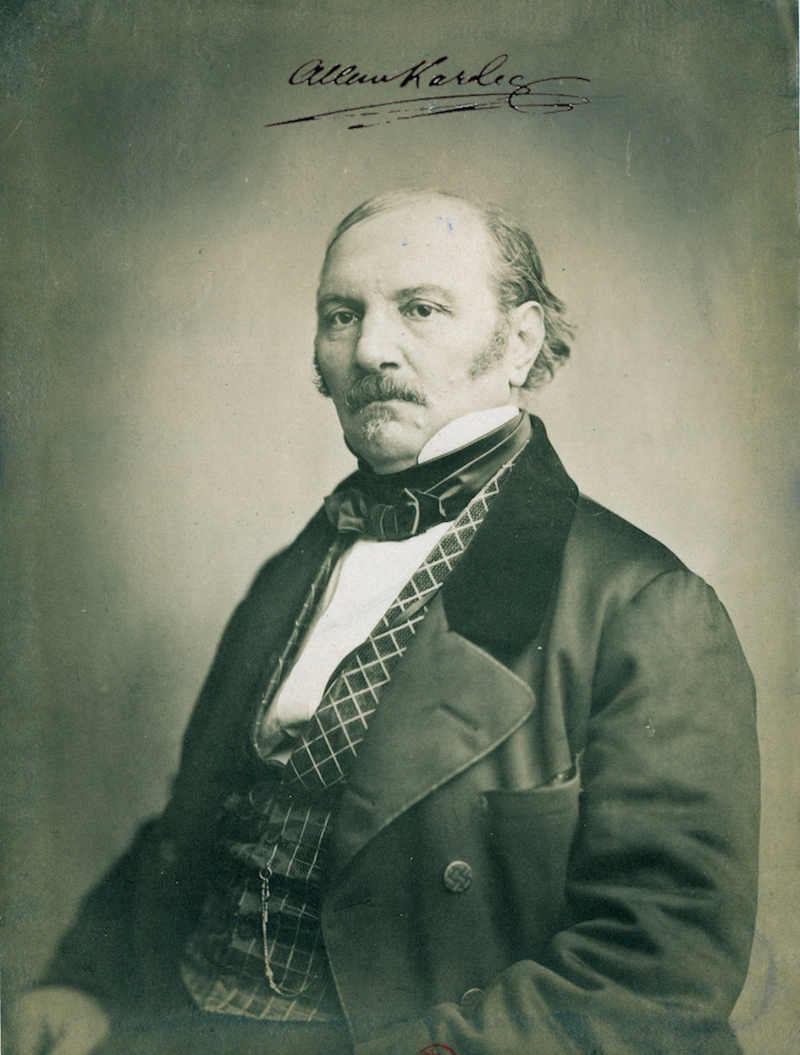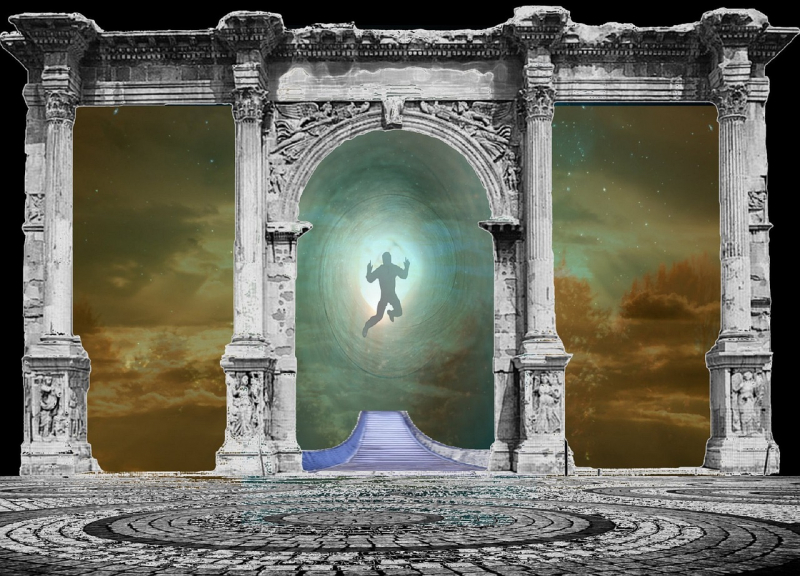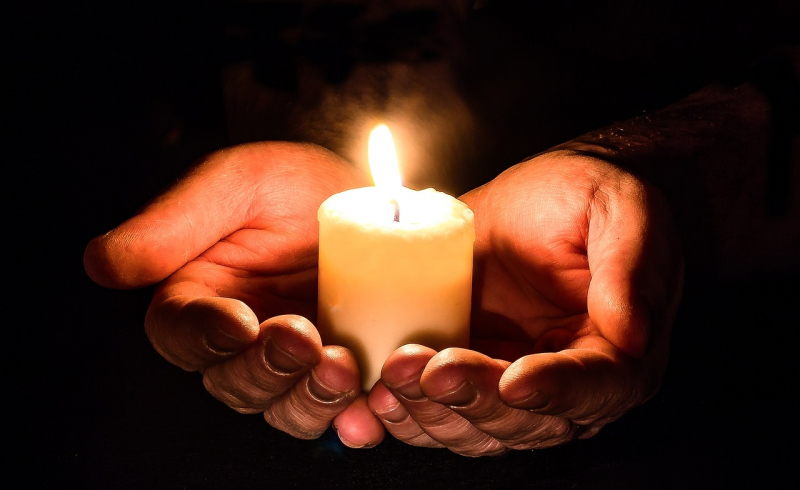Top 6 Fascinating Things About Spiritism You Should Know
Spiritism is the proper name for the belief that the living can and do communicate with the spirits of the departed, as well as the various practices that ... read more...attempt such communication. Here are the Fascinating Things About Spiritism You Should Know.
-
Spiritism is an occult religion that originated in nineteenth-century France. It was founded by Hippolyte Léon Denizard Rivail, also known as Allan Kardec. Spiritism has now spread over the world, but it is especially popular in Brazil, where it is known as Espiritismo.
The term "spiritism" first appeared in Kardec's 1857 book The Spirits' Book (French: Le Livre des Esprits), which attempted to differentiate Spiritism from spiritualism. Spiritism has since spread worldwide but is prevalent in Brazil, known as Espiritismo.
Spiritism has self-described as a religion with beliefs that incorporate science and philosophy. It asserts that it is scientific because it seeks empirical knowledge about the world. It is philosophical in the sense that it wishes to comprehend that knowledge. It is religious because its philosophies are applied as a culture.
The science of Spiritism investigates the existence and nature of spirits, which are nothing more than the immortal souls of men created by God. All souls are made pure and ignorant, evolving through their various incarnations.
The philosophy of Spiritism, which was derived from communications with discarnate (not currently incarnated) spirits, deals with the details of spirit life and the journey of evolution through the process of reincarnation. Understanding the role humans play in their spiritual growth is a natural result of that philosophy, which is ultimately achieved through our efforts to grow morally and intellectually.
Spiritism should be carefully distinguished from spiritualism. As opposed to Spiritism, spiritualism is best described as a philosophical mindset that acknowledges forces that transcend material reality. Similarly, spirituality refers to a belief in the spiritual but is not a religion in and of itself.
Many religions contain elements of both spirituality and spiritualism, but spiritualism is not necessarily religious in and of itself. Spiritualism (when capitalized) can also refer to a belief in mediumistic phenomena or the ability to communicate with the dead. It claims that through passive or active mediumship, disembodied spirits can positively or negatively influence the physical world.

Image by kjpargeter on Freepik Video by Spiritist Society of Melbourne channel on Youtube -
Allan Kardec was a translator, philosopher, author, and educator who was fascinated by psychic and mediumistic phenomena. Initially, he was a skeptic who felt that all inexplicable phenomena could be explained by nature, science, hallucination, or deception.
Following that, he established a slew of scientific inquiries to research, categorize, and investigate unexplained occurrences such as séances. Allan Kardec invented the name ''Spiritism'' during his investigations to encompass the notions, ideas, and hypotheses that emerged from his discoveries. In 1862, he released Spiritism in its Simplest Expression, a summary of Spiritism's philosophies.
Although Allan Kardec believed that nature, science, or fraud could explain the majority of psychic events recorded during his investigation, he believed that these explanations did not account for all psychic occurrences. Over time, he grew to assume that some unexplained phenomena were generated by aware spiritual powers, building on spiritualist ideas.
Allan Kardec proposed that these unexplained phenomena could be explained by some intelligent force with agency, such as spirits, souls, or other noncorporeal beings with the ability to alter the physical world.

Image by prostooleh on Freepik Video by SpiritistNet channel on Youtube -
Hippolyte Léon Denizard Rivail is a French professor. In the 1850s, he founded Spiritism in France under the pen name Allan Kardec. He was born on October 3, 1804, in Lyon, France, into a traditional family with a long history in the legal profession and the court system. He did not follow those professions. He had always been interested in science and philosophy since he was a child.
Allan Kardec was educated at the renowned Pestalozzi School in Yverdun (Switzerland), where he became one of that celebrated teacher's most eminent pupils and one of the most zealous propagandists of the Educational system, which had a significant influence on the reform of the Educational system in France and Germany.
Despite being born under the influence of the Catholic faith, he was schooled in a Protestant country. The acts of intolerance he experienced under these circumstances inspired him at a young age to envision a religious reformation, for which he worked discreetly for many years with the ultimate goal of establishing faith unification. He lacked, however, an essential component for resolving that massive dilemma. Spiritism emerged at this time to imprint in his mind the specific orientation for future endeavors.
Around the year 1855, the spotlight was placed on the subject of the manifestations of the Spirits, and Allan Kardec became dedicated to persevering on the observations of that occurrence, and cogitating primarily on its philosophical implications.
Allan Kardec could tell right away that these phenomena were the beginning of new natural laws: those that control the interactions between the visible and invisible worlds. He identified, in the operation of the invisible world, one of Nature's powers, the knowledge of which would shed light on vast issues hitherto thought insoluble, and he comprehended its theological implications.
Allan Kardec's main publications on the subject are: The Spirit's Book, which deals with the philosophical side of the idea and was initially published on April 18th, 1857; The Mediums' Book, concerning the experimental and scientific aspects (January 1861); The Gospel According to Spiritism, Concerning Moral and Ethics (April 1864); Heaven and Hell, or The Justice of God According to Spiritism (August 1865); Genesis, the Miracles and Predictions According to Spiritism (January 1868); Revue Spirite, a monthly newspaper of psychological studies that had begun on January 1st, 1858.
In a nutshell, Allan Kardec's publications reflect the following: The objective of life is spiritual growth, i.e. becoming more compassionate and wise. Humans keep returning (reincarnating) through numerous incarnations in order to grow closer to the goal.
On April 1, 1858, he established the first regularly organized Spiritist Society, known as the "Parisian Society of Spiritist Studies" with the explicit goal of studying anything that could contribute to the advancement of this new discipline. Allan Kardec successfully defended himself for writing something under the influence of planned or systematic thoughts.
As a person with a cool, quiet demeanor, Allan Kardec studied the facts and deduced the laws that govern them from his observations. He was the first to articulate the theory underlying such data and to organize them into an orderly and regular doctrinal body.
Allan Kardec established that the facts, which had previously been mistakenly regarded as supernatural, were actually subject to universal laws. He classed them as natural events, removing the last refuge of amazement and one of the elements of superstition.
Within a few years, their concepts gained a large number of supporters in all social circles around the world. That exceptional popularity was undoubtedly owing to the sympathy that such concepts aroused; however, it was also primarily due to the clarity with which they were presented, which is one of Allan Kardec's masterpieces.

Image by Ronald Sanson Stresser Junior on Pixabay Video by United States Spiritist Federation - USSF channel on Youtube -
Spiritism adherents believe in reincarnation, a supreme creator God, and an immortal spirit or soul. They also believe that events in the physical world are related to and influenced by events in the spiritual world.
Allan Kardec wrote five major works that outlined Spiritism's philosophies and doctrines. The Spirits's Book (1857), The Mediums's Book (1861), The Gospel According to Spiritism (1864), Heaven and Hell (1865), and The Genesis (1868) were the titles of these books.
The Spirits's Book, among these, was regarded as the foundational text that established Spiritism as a religion. According to The Spirits's Book, some of the major principles of Spiritism are:
- There is only one supreme God who is infinite, eternal, and good, and who does not have a physical form.
- Everything, including the corporeal and spiritual worlds, was created by God.
- The spiritual world is imperceptible and eternal, whereas the corporeal world is visible and transient.
- Humans are the temporary physical manifestations of eternal spirits.
- The soul is the immortal spirit, while the mortal body only carries the soul.
- Every human being is made up of a physical body, an immaterial spirit, and a perispirit that connects the two.
- A hierarchy of spirits exists, with behaviors ranging from petty and animalistic to moral and divine.
- When a spirit leaves a deceased body, it briefly returns to the spirit world before being reincarnated so that it can mature and evolve to a higher order over time.

Image by Karin Henseler on Pixabay 
Image by Victoria_Regen on Pixabay -
The first tenet is the Existence of God. God is the creator, the Supreme Intelligence, and the primary cause of all things. The magnitude, order, and harmony that exist in the universe must be the work of an absolutely intelligent and wise Being. There is no impact without a cause. Considering nature's miracles and the harmonious working of our own body, which follows perfect rhythm regardless of our will, compels us to believe in God as its necessary cause. We can also perceive his existence through our senses: there has always been an innate idea of God's existence in every individual, of all people and times.
The Immortality of the Soul is the second tenet. The spirit is the universe's intelligent principle. God creates it simple and uninformed in order for it to evolve and fulfill itself through its own efforts. We existed as spirits before we were born on Earth, and we shall continue to exist after we die physically. When a spirit inhabits a physical body, we refer to it as an incarnated spirit. When a person is born, the spirit reincarnates; when a person dies, the spirit disincarnates and returns to the spiritual world from which it came.
The next tenet is the Spirit Communicability. The discarnated spirits retain the same traits as when they were alive: they can be good or bad, serious or playful, educated or rude. They're everywhere and can see us. If we are both vibrating at the same frequency, they can read our minds and control them. The discarnated spirit can and will communicate through a medium if it so desires. The mode of communication depends on the sort of mediumship: it can be by speech (psychophonia), writing (psychographics), hitting (typtology), or other means. The moral character of the media determines the quality of communication. People who are suitable attract positive energy. Mediums who use their gift for their own gain attract less evolved spirits.
Fourthly, Reincarnation is necessary for the progress of the spirit. As a school, it offers a variety of experiences that guide the spirit to moral and intellectual growth. The spirit incarnates and reincarnates as many times as necessary in order to evolve and gain more knowledge, and to get closer and closer to God. Reincarnation also permits us to reconnect with loved ones or people with whom we had issues in previous lifetimes in order to re-start relationships and pay off debts with them.
The last tenet of Spiritism is the Diversity of Inhabited Worlds. Not all reincarnations take place on Earth. Because God did not create anything useless, all existing worlds are populated. planets, like souls, evolve, and there are planets above and below the Earth. The Earth is a globe of proof and atonement, a morally deficient world where the bad dominates the good. However, it is currently transitioning into a world of regeneration, in which the terrible will equal the good and men will become more fraternal and giving.

Image by Freepik 
Image by jcomp on Freepik -
Spiritism organizations, known as Spiritist Centers, may be found all over the world, mainly in Europe, North and South America. Because Kardec never established specific rituals or theological praxis, Spiritist customs and practices can vary.
Spiritists gather in spiritist centers to study the works of Kardec and other spiritists, hone their mediumship talents (though not all spiritists are mediums), and do humanitarian deeds. Spiritists offer outpatient clinics, dental services, psychiatric hospitals, orphanages, pharmacies (some of which are homeopathic), and a variety of other free services for the needy in Brazil.
Spiritist facilities also provide spiritual healing, which usually consists of "passes" (roughly, the laying on of hands) and a sort of exorcism known as "disobsession". Spiritists believe that affliction from earthbound spirits, which attach themselves to individuals and bring them mental pain and physical illness, is one source of illness.
Some mediums have also been accused of performing "psychic" or "spirit surgery". One form involves pantomime - like operations over the patient's body; Spiritists operate on the spiritual body without really touching the patient. Another method includes cutting into the skin with a knife or other instrument, typically to remove small tumors such as lipomas.
The latter is particularly contentious, and the practice has been banned by an organisation of spiritists who are also practicing medical professionals. They prefer traditional "passes" and "disobsession" as well as alternative psychotherapies such as "past - lives" therapy and neurolinguistic programming.

Image by Myriams-Fotos on Pixabay 
Image by Yerson Retama on Pixabay


















